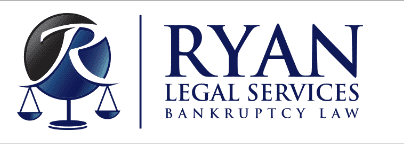The answer to this question is not always an easy one. Making the decision as to whether or not to file a bankruptcy case should be made after careful consideration of the unique facts and circumstances of each case. A decision as to whether or not to file a bankruptcy case can also be an emotional decision. Bankruptcy cases often flow from a set of circumstances that are fully or partially outside of a person's control ( death of a spouse, loss of a job, an unforeseen medical condition, divorce, moving to a new city or state, etc.
The best way to reach a decision as to whether or not to file a bankruptcy case is to meet with an attorney who is experienced in this area of law. An attorney who engages in the practice of bankruptcy law on a full time basis can review your financial circumstances and your assets to help you decide on what the best move will be. If there is a way to avoid filing bankruptcy to deal with certain debts, your attorney can advise you on these options.
Chapter 7 Bankruptcy
In most cases, the first option you and your attorney should examine is Chapter 7. A Chapter 7 bankruptcy is the fastest way for an individual person to obtain a fresh financial start. In most Chapter 7 cases, the Debtor receives a Discharge Order from the United States Bankruptcy Court ( 11 U.S. Code, Section 727) which cancels out the Debtor's liability for all scheduled debts. The Debtor can reaffirm debts such as mortgage loans and auto loans in a Chapter 7 case, and remain personally liable on the underlying promissory notes for these types of debts. Security interests of creditors, or "liens," remain unaffected by the bankruptcy Court's Discharge Order. In some instances, a Debtor in a Chapter 7 case can "redeem" certain property from a secured creditor by asking the Court for an Order permitting the Debtor to pay the secured creditor only the fair market value of the property which secures the debt. There are a few lenders who will provide a free evaluation as to whether a redemption loan can be obtained by the Debtor in this process. This is one aspect of Chapter 7 cases that an experienced bankruptcy attorney can help you with.
Chapter 13 Bankruptcy
There are other situations where a Chapter 7 case will not be feasible, or situations where the Debtor is simply not eligible to file a Chapter 7 case. The United States Bankruptcy Code provides certain household income limitations on Chapter 7 Debtors. In every Chapter 7 case, a "Means Test" form ( Official Bankruptcy Form 22A) must be completed to determine the debtor's eligibility to file under Chapter 7. There are also limitations on filing a Chapter 7 case where the Debtor has filed a prior bankruptcy case ( where a Discharge Order was in fact issued) within the previous eight ( 8 ) years. This eight (8) year "lookback" has been in effect since October, 2005.
A Chapter 13 case is a bankruptcy case where the debtor makes a monthly payment under the terms of a Chapter 13 Plan. The Chapter 13 Plan has to run for a term of at least 36 months, up to a maximum length of 60 months. The term of the Plan is determined by several factors. The "Means Test" that applies in Chapter 7 cases similarly applies in Chapter 13 cases ( Official Bankruptcy Form 22 C). The Chapter 13 "Means Test" is generally a determiner as to how much money the debtor must pay to general unsecured creditors. The debtor's income ( along with the income of the debtor's spouse, even if not filing jointly) is included on the "Means Test" as household income. A series of deductions are applied through the "Means Test" to determine the debtor's "disposable income." Disposable Income multiplied by 60 determines the amount the Debtor must pay as a threshold to general unsecured creditors. The applicable Median Income as determined by IRS quarterly data will determine the required length of the debtor's Chapter 13 Plan. A debtor who is over the applicable Median Income must proceed under a 60 month plan.
Chapter 13 is also a "reorganization" bankruptcy case. This means that secured debt such as mortgage loans and car loans can be decelerated and paid back ( the arrears at the time of case filing) over the term of the Plan, with zero interest. Auto loans can be stretched out in some Chapter 13 cases, and in cases where the loan is older than 910 days the principal amount can be reduced ( or "crammed down") to the fair market value of the collateral. The balance of the debtor over and above the "crammed down" amount is treated in the Plan as general unsecured debt. At the end of the Chapter 13 Plan, after all payments are made, the Debtor receives a Discharge Order, similarly to the Discharge in Chapter 7 cases.
There are of course a myriad of details and benefits to filing a Chapter 7 and Chapter 13 bankruptcy case which cannot be fully covered in this limited Blog space. In order to take full advantage of all of the benefits of Chapter 7 and Chapter 13 ( the most common individual bankruptcy cases), contact us to schedule a free no obligation consultation about all of your options.

